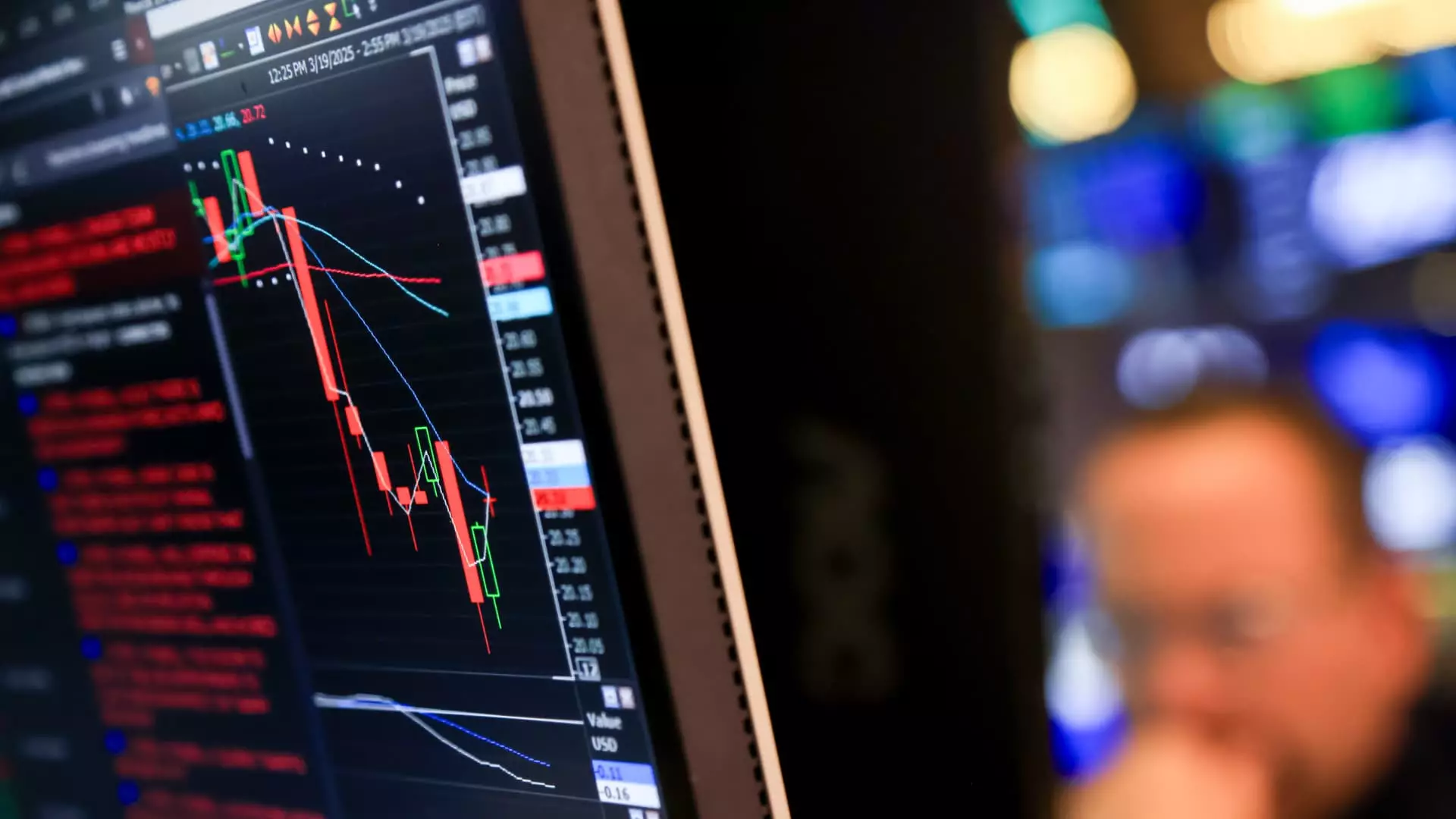The venture capital (VC) landscape appears to be teetering on the brink of crisis, exacerbated by a convergence of economic woes and political turbulence. Once a fertile ground for innovation and entrepreneurship, the current environment is reminiscent of a high-stakes game where even seasoned investors struggle to navigate the chaotic terrain. While some may maintain a façade of optimism, the reality is that numerous critical elements are rendering venture capital a far less appealing option for many startups, leaving them vulnerable in a market that’s becoming increasingly hostile.
Unprecedented Market Volatility
The ongoing unpredictable fluctuations in the stock market have left venture capitalists in an untenable position. The recent multitrillion-dollar stock market plunge has unfolded alongside the announcement of new tariffs by the Trump administration, casting a longer shadow on the already precarious state of the market. Such market volatility raises serious questions about the strategy and viability of investing in companies that rely on a smooth and stable financial environment for growth. Tobias Bengtsdahl, a partner at Antler’s Nordics fund, captured this concerning sentiment when he observed that investors are less likely to engage in public offerings during this turbulence. The fear is palpable: many firms are now considering whether they should follow in the footsteps of major players who recently postponed their IPOs.
Additionally, the analysis of the private capital market presents a disconcerting picture. While valuations of startups may remain stable in the absence of new equity rounds, the dampening effect of stock market instability means that raising capital is becoming increasingly difficult. Late-stage companies, which are often just on the cusp of transitioning into public companies, are now at risk of significantly diminished valuations if they can’t find viable exit strategies. The implications here are alarming, raising the question of whether VC firms can maintain stable returns in such a tumultuous environment.
Longer Stays in the Shadows
The trend of startups choosing to stay private longer injects further strain into the venture capital ecosystem. Not only is this a rejection of the traditional path of going public, but it also complicates the return on investment for VCs who are primarily looking for an exit strategy in the form of an IPO or acquisition. Limited partners are eager for returns on their investments, which can take as many as ten years to mature. This growing trend leaves VCs with fewer options to realize profits, causing a ripple effect of anxiety among investors.
As noted by industry professionals like Alex Barr of Sarasin Bread Street, limitations on exits will only exacerbate these challenges. When the stock market is in disarray, the potential for successful mergers and acquisitions diminishes—adding another layer of friction to the already muddied landscape. The personal commitment of venture capitalists, who often face pressure from their limited partners to facilitate exits, could make them susceptible to rushed or poorly considered decisions, creating an environment ripe for poor outcomes.
Opportunity Amidst Adversity?
Interestingly, there are some voices suggesting that the current climate may unexpectedly benefit European startups. Sanjot Malhi of Northzone pointed out that the market turbulence may drive talent and liquidity away from the United States. This shift could be a blessing in disguise for European tech firms, as they can seize the opportunity to foster innovation and create more resilient technological ecosystems. The push towards strengthening a unified European tech landscape could very well catalyze an influx of startups that prioritize sustainability over quick returns, potentially reshaping the global tech environment.
Christel Piron of PSV Foundry identified a “silver lining” in the current atmosphere, suggesting that European entrepreneurs are more inclined to invest in their local markets out of a sense of responsibility. While the U.S. environment continues to be marred by uncertainty, Europe may present a more welcoming alternative for those seeking fertile grounds for their ventures. Such dynamics present a stark contrast to the struggles existing within the U.S. market, where investors are left waiting for clarity and stability, which may never regain its footing.
However, the optimistic outlook for Europe does not come without caveats. Concerns about potential down rounds for late-stage investments remain palpable among investors. As firms scrambled to bridge potential capital gaps, fears abound that this precarious environment could lead to reduced valuations, further dissuading startups from seeking additional funding.
The intersection of venture capital, economic instability, and entrepreneurship is complex and fraught with challenges. While some may choose to remain steadfast in the belief that recovery is just around the corner, the reality is that the venture capital landscape is at a crucial juncture and may require a profound shift in strategic thinking to ensure its long-term viability.

